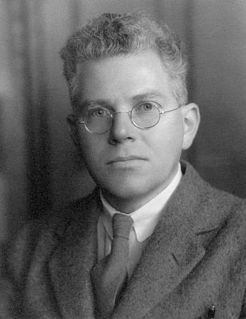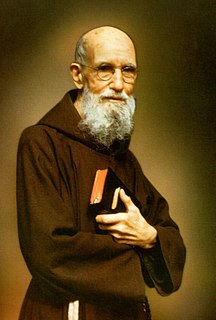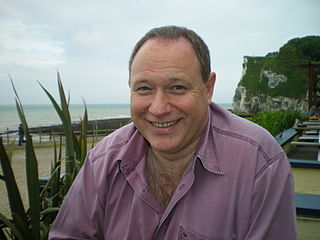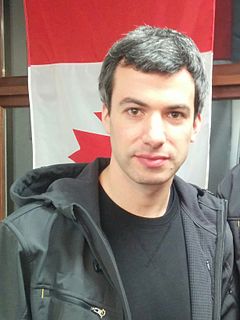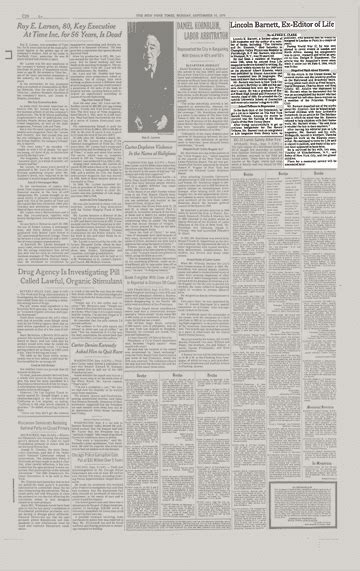Top 1200 Best Science Quotes & Sayings
Explore popular Best Science quotes.
Last updated on April 17, 2025.
I do think that science fiction ideas are best expressed through visual media like film and TV. Realist literature depicts things that we have seen in life, but science fiction is different: what it depicts exists only in the author's imagination. When it comes to science fiction, the written word is inadequate.
It is time to create new social science departments that reflect the breadth and complexity of the problems we face as well as the novelty of 21st-century science. These would include departments of biosocial science, network science, neuroeconomics, behavioral genetics and computational social science.
I would teach the world that science is the best way to understand the world and that for any set of observations, there is only one correct explanation. Also, science is value-free, as it explains the world as it is. Ethical issues arise only when science is applied to technology - from medicine to industry.
I believe that science is best left to scientists, that you cannot have managers or directors of science, it's got to be carried out and done by people with ideas, people with concepts, people who feel in their bones that they want to go ahead and develop this, that, or the other concept which occurs to them.
'Who are we?' And to me that's the essential question that's always been in science fiction. A lot of science fiction stories are - at their very best - evocations of that question. When we look up at the night sky and wonder, 'Is there anyone else out there?' we're also asking who we are we in relation to them.
In order that the relations between science and the age may be what they ought to be, the world at large must be made to feel that science is, in the fullest sense, a ministry of good to all, not the private possession and luxury of a few, that it is the best expression of human intelligence and not the abracadabra of a school, that it is a guiding light and not a dazzling fog.
Who are we? And to me that's the essential question that's always been in science fiction. A lot of science fiction stories are - at their very best - evocations of that question. When we look up at the night sky and wonder, "Is there anyone else out there?" we're also asking who we are we in relation to them.
Love is a chemical reaction, but it cannot be fully understood or defined by science. And though a body cannot exist without a soul, it too cannot be fully understood or defined by science. Love is the most powerful form of energy, but science cannot decipher its elements. Yet the best cure for a sick soul is love, but even the most advanced physician cannot prescribe it as medicine.
The popularity of the paranormal, oddly enough, might even be grounds for encouragement. I think that the appetite for mystery, the enthusiasm for that which we do not understand, is healthy and to be fostered. It is the same appetite which drives the best of true science, and it is an appetite which true science is best qualified to satisfy.
Science has only two things to contribute to religion: an analysis of the evolutionary, cultural, and psychological basis for believing things that aren't true, and a scientific disproof of some of faith's claims (e.g., Adam and Eve, the Great Flood). Religion has nothing to contribute to science, and science is best off staying as far away from faith as possible. The "constructive dialogue" between science and faith is, in reality, a destructive monologue, with science making all the good points, tearing down religion in the process.
The best way to get students involved in science and want to follow either science careers or incorporate it in their lives or to achieve science literacy is to expose them to the various jobs in STEM. It's broad from biologists to electricians to nanotechnologists to building fusion engines. It's a wide range of things.
Science is a human activity, and the best way to understand it is to understand the individual human beings who practise it. Science is an art form and not a philosophical method. The great advances in science usually result from new tools rather than from new doctrines. ... Every time we introduce a new tool, it always leads to new and unexpected discoveries, because Nature's imagination is richer than ours.
But if the two countries or governments are at war, the men of science are not. That would, indeed be a civil war of the worst description: we should rather, through the instrumentality of the men of science soften the asperities of national hostility. Davy's remarks to Thomas Poole on accepting Napoleon's prize for the best experiment on Galvanism.
Most songwriters who have been lucky enough to have their song on the radio or be heard widely don't know anything about science. The best songs have a strong dose of metaphor. Most songs about science don't have that. Like 'She Blinded Me With Science.' It's a stupid song, no offense to Thomas Dolby.
Science fiction is fantasy about issues of science. Science fiction is a subset of fantasy. Fantasy predated it by several millennia. The '30s to the '50s were the golden age of science fiction - this was because, to a large degree, it was at this point that technology and science had exposed its potential without revealing the limitations.
Social Science, is not a 'gay science' but rueful, which finds the secret of this universe in 'supply and demand' and reduces the duty of human governors to that of letting men alone. Not a 'gay science', no, a dreary, desolate, and indeed quite abject and distressing one; what we might call, the dismal science
We are living in a society that is totally dependent on science and high technology, and yet most of us are effectively alienated and excluded from its workings, from the values of science, the methods of science, and the language of science. A good place to start would be for as many of us as possible to begin to understand the decision-making and the basis for those decisions, and to act independently and not be manipulated into thinking one thing or another, but to learn how to think. That's what science does.
The leading edge of the best science in the world is being driven by private money, and investment money because of the scarcity of government money to do this. It's not only by far the best and most advanced science, we're driving the equation at Human Longevity that everyone else is beginning to follow as well.
Heinrich Zimmerhe had a little saying : The best things cant be told - because they are transcendent, inexpressible truths. The second best are misunderstood : myths, which are metaphoric attempts to point to the way toward the first. And the third best have to do with history, science, biography, and so on. The only kind of talking that can be understood is this last kind.
All Science is necessarily prophetic, so truly so, that the power of prophecy is the test, the infallible criterion, by which any presumed Science is ascertained to be actually & verily science. The Ptolemaic Astronomy was barely able to prognosticate a lunar eclipse; with Kepler and Newton came Science and Prophecy.








